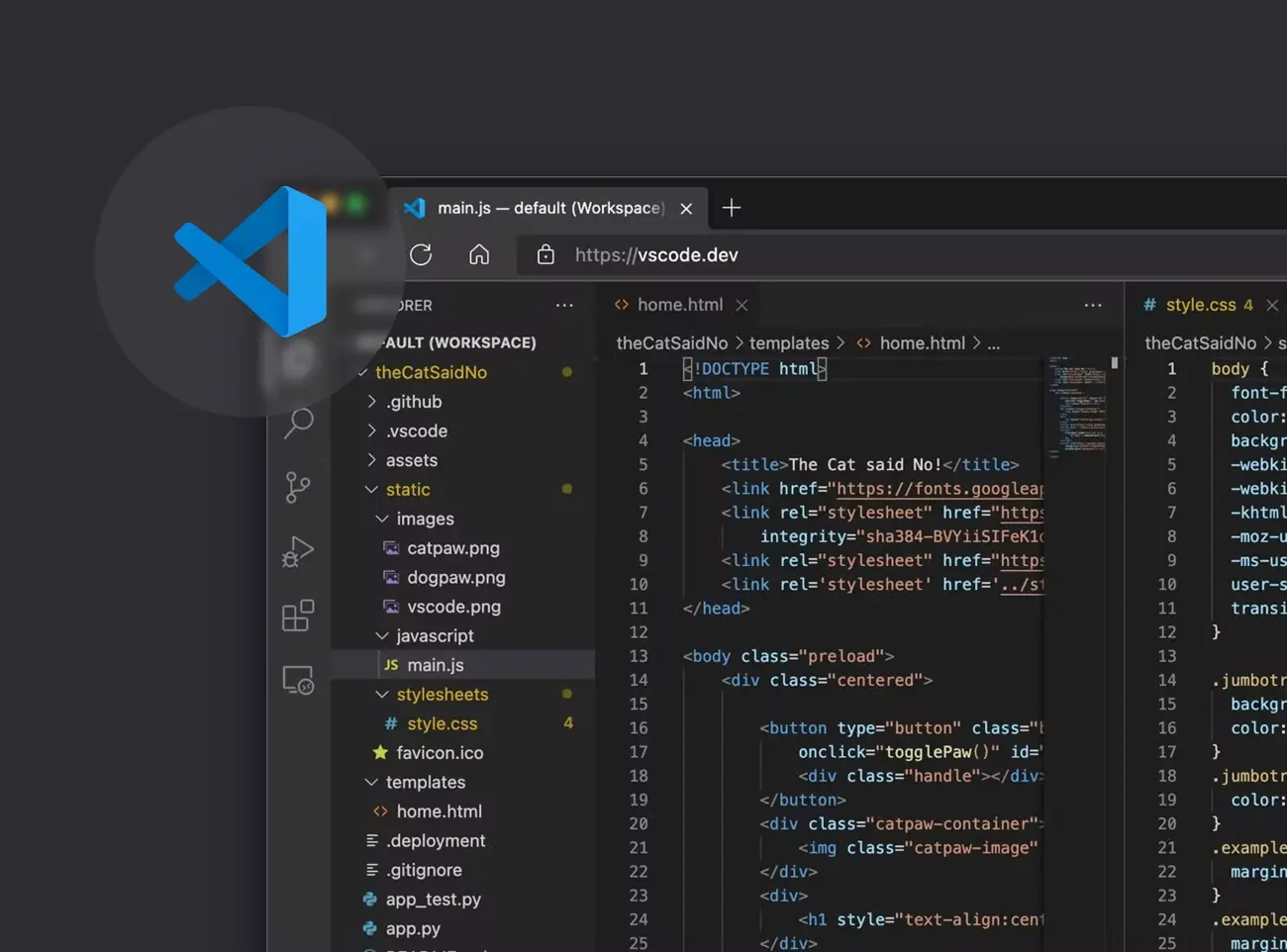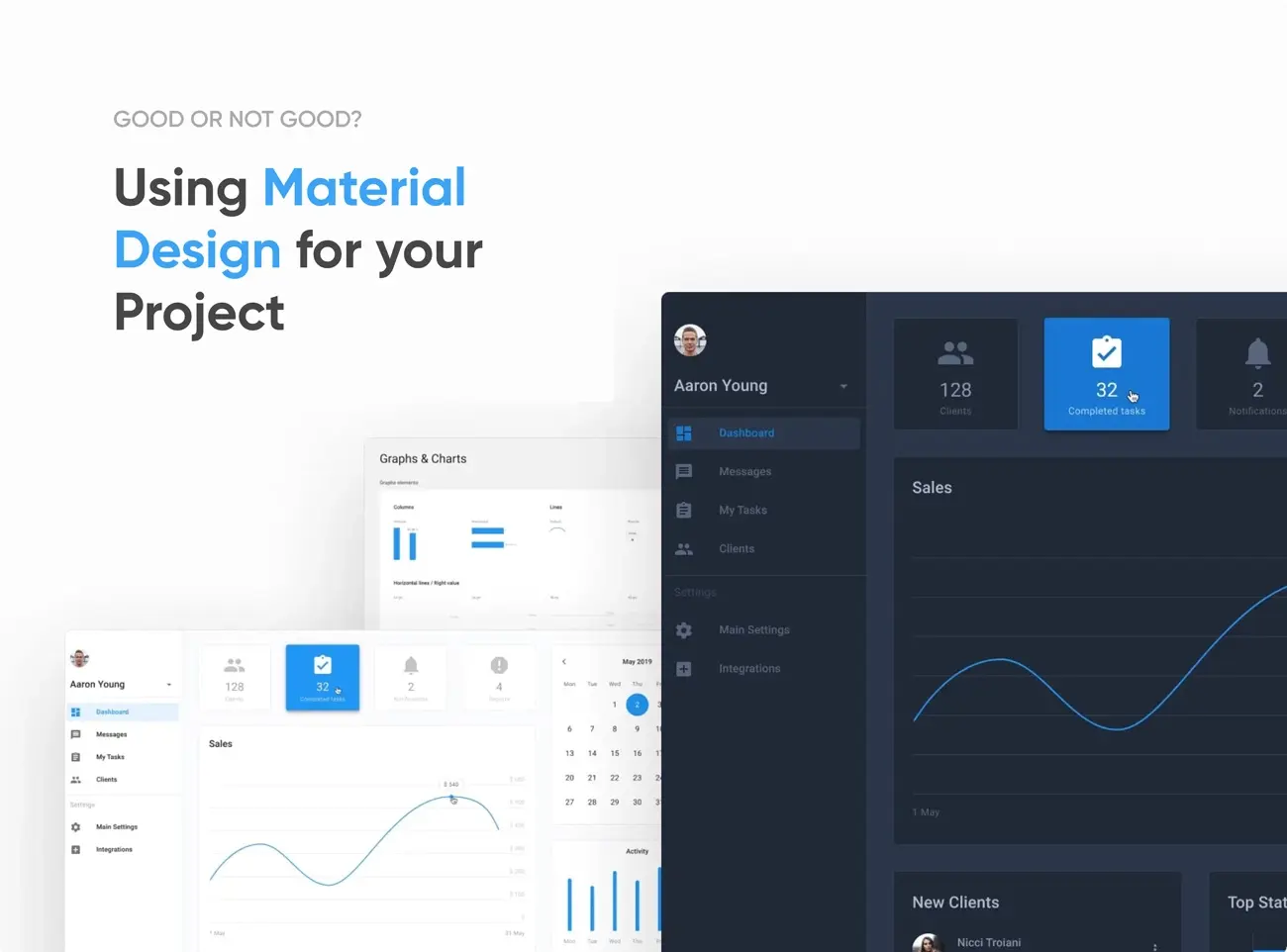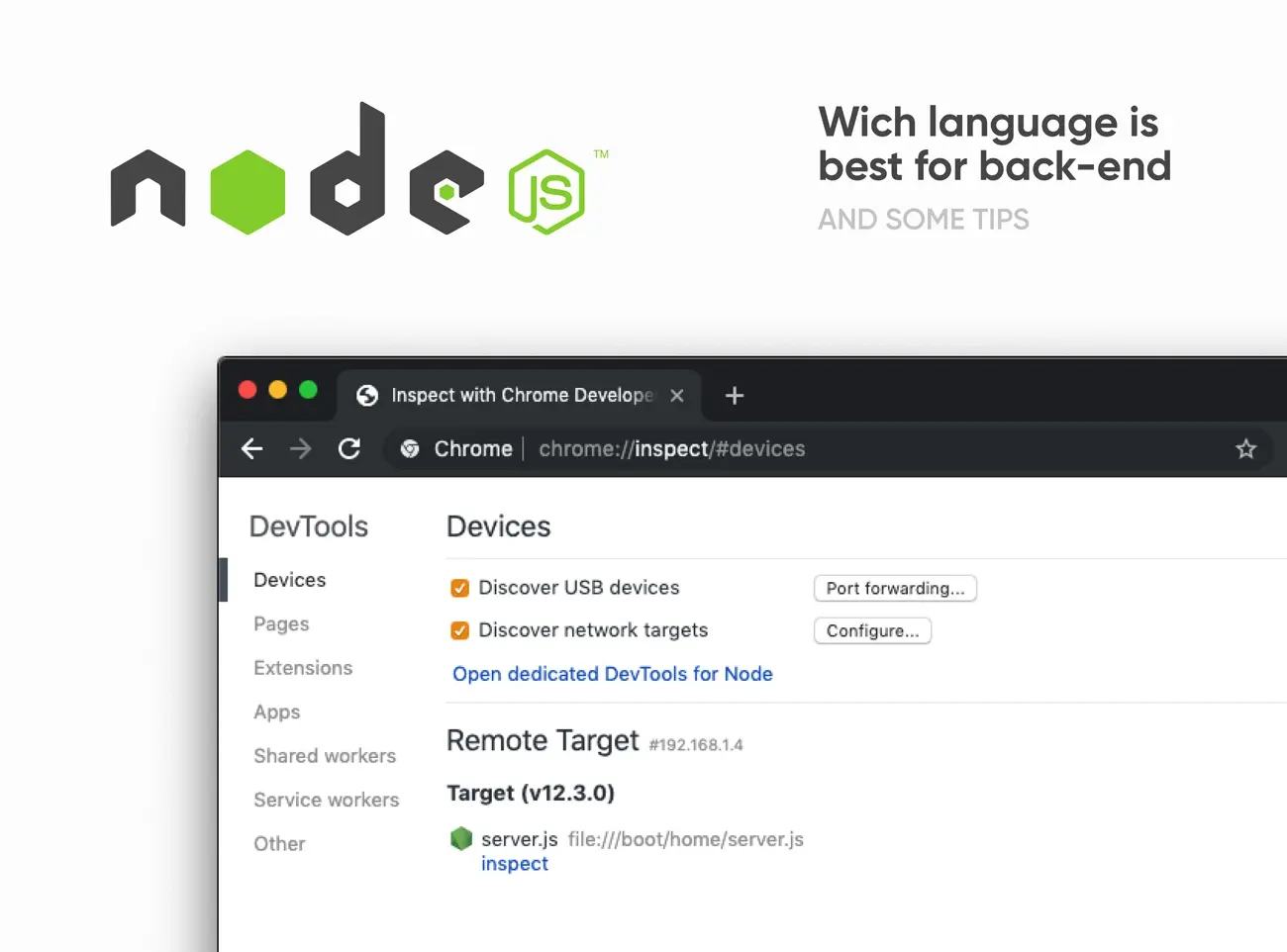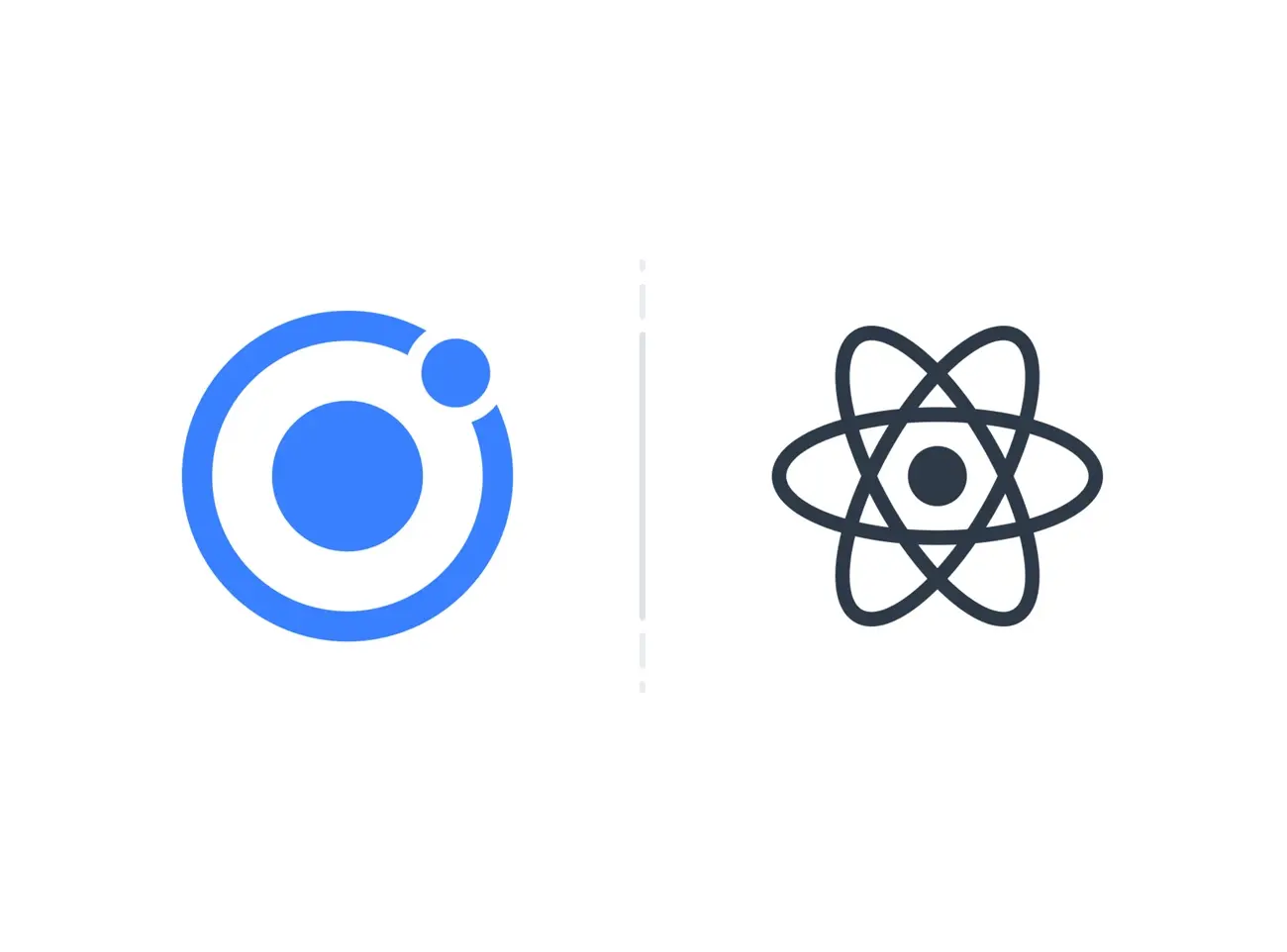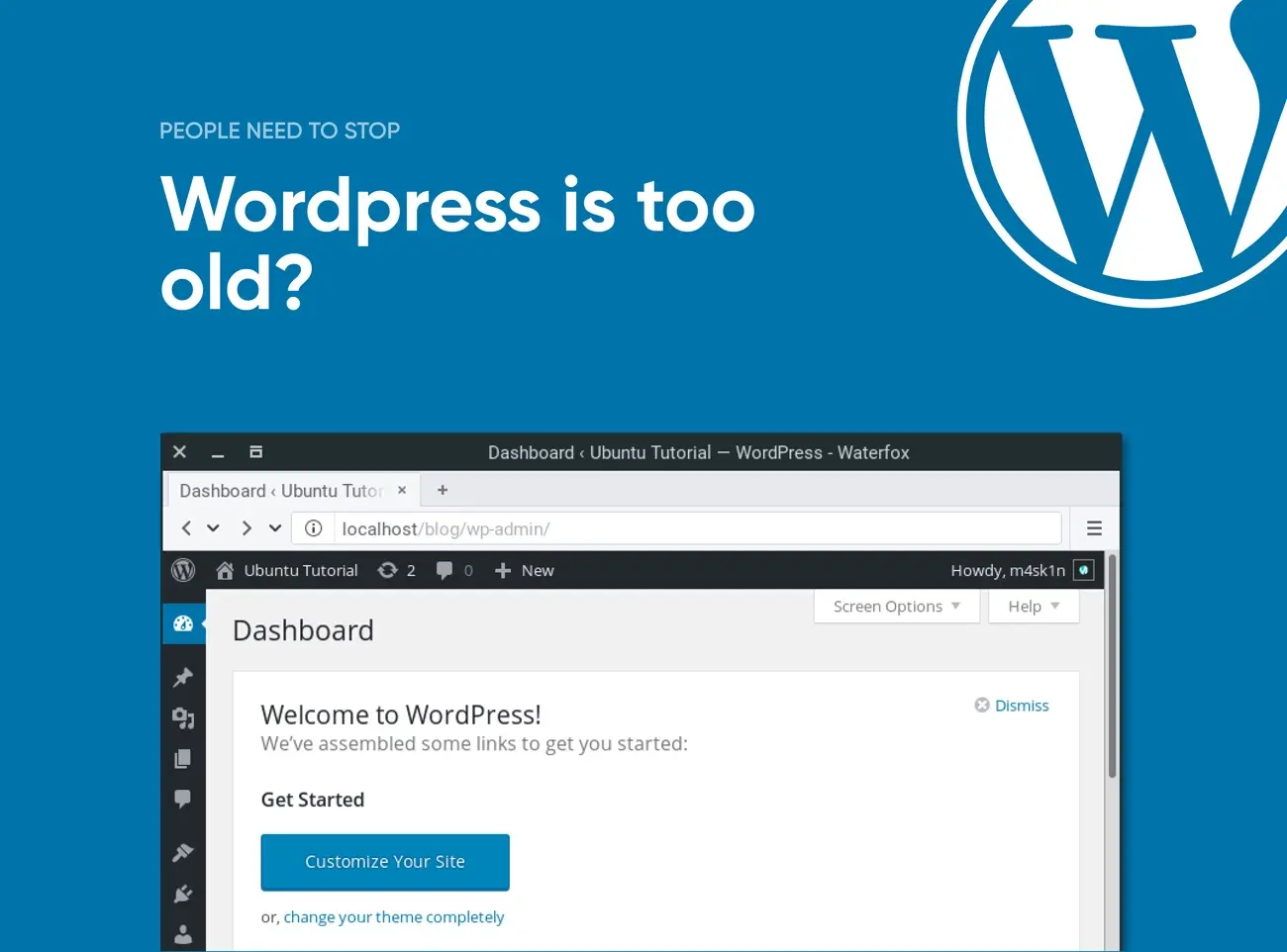Drag
Front-end · Sep 2022 · 8 MIN READ
Why you should consider a different platform?
WordPress is one of the most popular website-building platforms in the world, and for good reason. However, there are also some downsides to using WordPress that are worth considering before making a decision on whether or not to use it for your website. There are some drawbacks to using WordPress, including security concerns, limitations in customizability, and performance issues. This post will give you a new perspective on the platform and help you decide if it's the right choice for your needs. So, let's dive in!

What Is WordPress?
WordPress is a software that enables the creation of websites without the need for knowledge of HTML code. It is currently the most popular platform for websites on the Internet, powering over 43.3% of all websites. Its popularity is due to its being free and open-source, with a large number of plugins and themes available. This has also allowed for programmers to create a wide range of additional themes and plugins for the software.WordPress is an engine, a content management system (CMS). Essentially, it allows you to write articles and save them without taking care of the layout, design, navigation, and search engine optimization. However, having knowledge in these areas can provide a more personalized and fine-tuned experience. Installing WordPress is simple and many hosting providers offer the service for free or can install it manually. With WordPress, you can create a wide variety of websites including business sites, online stores, promotional pages, multilingual sites, catalogs, encyclopedias, personal and public blogs... and many more.
Themes and Plugins
Themes change the appearance of a website. They can range from simple color changes to complete redesigns. Plugins add specific functionality to a website such as comments, newsletter subscriptions, caching, and more. All these elements are controlled by WordPress which acts as an invisible operating system for the website. It also provides an admin panel for managing the website. WordPress is responsible for communication with the server and technical rendering of pages, content creation, data storage, backup, and more.Just like themes, plugins can be paid or free, depending on the developer. Moreover, it is not necessary that paid plugins will work better than others, the main thing is that they solve your problem. Almost every paid plugin has a free alternative or a trial period during which you can find out if this product suits you or not.

Understanding the advantages and disadvantages
It is common for only positive aspects of website-building platforms to be highlighted, such as being suitable for large or small projects, or being ideal for online stores. However, the negative aspects of these platforms are often not discussed or are mentioned briefly and vaguely. It is important to also consider the downsides of a platform, rather than relying solely on subjective opinions such as “it's difficult to use” or “I don't like it.” It's important to consider the specific needs and requirements of your website, rather than blindly following the subjective experience of others. It's also important to keep in mind, that the requirements for a 2-page website are different from a large e-commerce website.In the early days of the internet, all websites were static, written in pure HTML and CSS (JavaScript came into widespread use later). With the advent of content management systems (CMS), dynamic websites, which use server-side scripting languages such as PHP to serve content from a database, became more prevalent. While CMS-driven websites are popular for their ease of creation and management, they also have several notable drawbacks, including performance and security issues.
WordPress as a popular platform for creating websites
According to Jamstack.org, there are over 100 static site generators available, written in various programming languages like JavaScript, Ruby, Python, and Go, including specialized Next.js generators for React sites and Nuxt.js for serverless Vue applications. While these tools are powerful and effective, they may be too complicated for the average builder or designer. Even CMSs like CloudCannon and Statamic, which aim to simplify site management and content editing, may still be too technical for non-professionals to use, and lag far behind WordPress in terms of ease of use.WordPress has been a widely popular website-building platform for many years. Since its initial release 18 years ago, it has grown from a simple blogging platform to a comprehensive content management system (CMS), enabling users to easily create and edit dynamic web pages.According to the well-known analytical company W3Techs, today 65.2% of CMS-managed sites and 43.1% of all sites on the internet are built using WordPress. Given these statistics, it would be surprising to think that WordPress is less in usage. However, there are often articles published on various resources that announce its death and the demise of the technologies underlying it, particularly PHP.

Much of the talk about WordPress being an increasingly weak use may stem from the developer's negative experiences with the platform, such as dealing with difficult code refactoring, managing unnecessary plugins, and trying to meet unrealistic customer requests. While these complaints are often valid, it does not necessarily mean that the platform should be abandoned altogether.The popularity of WordPress and its dominance in the market is largely due to its ease of use and accessibility as a free solution for quickly launching an online business. Setting up a project on WordPress involves following simple instructions on the official website. However, at its core, WordPress is primarily a blogging platform with limited functionality. This means that it does not have built-in features for selling services and products, setting up online stores, and other necessary features for customers.
The problem of CMS
From all this, we can deduce the problems of CMS:#1 In its pure form, WordPress is not suitable for creating any type of website except blogs. To create a fully functional website, developer intervention is necessary. To accomplish this, thousands of pre-designed themes are available for immediate installation and use. These themes provide additional functionality, but they can also affect the website's performance due to the number of unnecessary add-ons and a large number of files being installed.To use WordPress to its full potential, you will need to connect extensions, widgets, and plugins to your site. While you may think that installing additional modules that add functionality is an advantage, it can often lead to negative consequences. Some users install dozens of different plugins, from WooCommerce to commenting plugins, to implement all their ideas, and each plugin is from a different developer. This approach not only incurs financial costs and loss of productivity due to overloading with unnecessary functionality but also poses a risk of infecting your site with malicious content. Additionally, plugin developers may stop supporting them at any time.#2 CMS platform users, such as WordPress, face the inconvenience of constant updates to avoid potential site downtime and security vulnerabilities. As an open-source platform, WordPress is susceptible to hacking attempts by individuals all over the world who seek out vulnerabilities in the system to use for malicious activities such as spam and data theft. The best way to mitigate this risk is to regularly update WordPress as the platform developers work to fix discovered vulnerabilities with each update, thus reducing the likelihood of a successful hack.Since updating is crucial and ongoing, it can become a constant task for users to maintain their site and ensure it runs efficiently with minimal effort and attention. To avoid complications, it is recommended to choose a theme created by an experienced developer who has been in the market for a long time and has positive reviews from previous clients. This increases the likelihood that the developer will take care of their product and its security.

What it means for PHP and WordPress
Professional and high-performing websites are not typically built on CMS. If you plan to scale your business and attract a large audience to your website in the future, it's important to consider this in advance to avoid having to completely rewrite the site later on. If you plan to use an online builder, it's important to choose the option that best meets the requirements of your business. There are several options available in the market today.It's worth noting that the PHP language, which underlies WordPress, is no longer the only option for server-side scripting as it used to be. More and more, developers are using other technologies such as Node.js in combination with MongoDB and Express. These technologies have the advantage of simplifying the development process by using a single scripting language across the entire stack and also improving scalability and performance.While PHP has come a long way since its first release in 1994, it is starting to fall out of favor. According to the latest Stack Overflow survey of popular web technologies, it ranked eleventh. Additionally, many of the things currently created in WordPress could be created more securely and performantly using frameworks such as Django (Python) or Angular (JavaScript). However, many existing plugins are outdated and have not been updated to newer technologies, so although the quality could be better, it's unfortunately not the case. It's important to remember that all these technologies are just tools in the hands of a skilled developer, and it's possible to create something truly worthwhile using any of them if they know how to use it.

Conclusion
In conclusion, despite what some skeptics may claim, WordPress is still a strong and viable platform. It continues to dominate the internet in terms of market share and user base, showing no signs of slowing down. However, it does have some significant issues that could potentially threaten its dominance in the CMS market in the future. As web technologies continue to evolve rapidly, it's important for developers to adapt and stay current with industry trends to remain successful.
